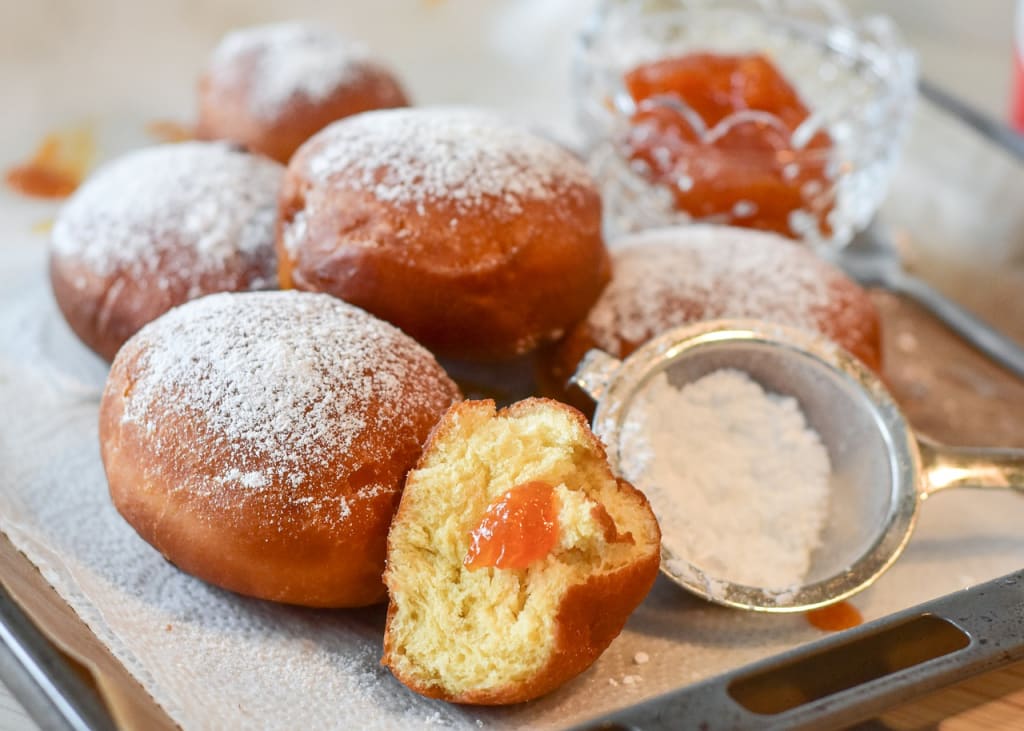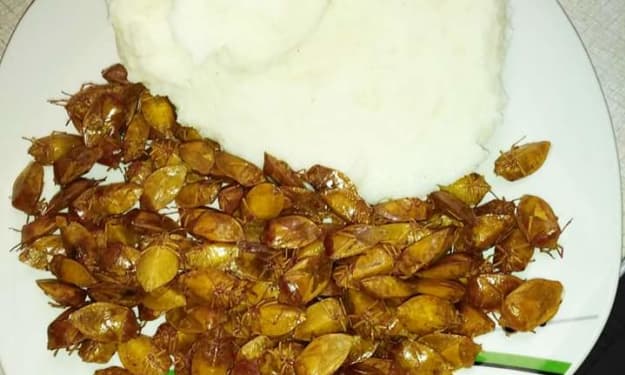
When biting down into a beignet, you taste the sweet puffy pillow. The light crunch before the soft middle is like nothing else. It's like when you’re ready to lay your head on a silk duck-feather pillow after a long tiring day; you first feel the cool exterior of the silk; then ease into the surface where you can hear the slight crunch of the duck feathers.
As you bite down and reach the soft layers, it feels as your head sinks further into the pillow, the softer it feels. The sweet sensation of resting your head as all the day’s frustration fades. Such a content feeling. And you crave it more, knowing that it brings you happiness.
But there comes a time where you finish a beignet. When you have to wake up. You want to lay there for a few more moments. Slightly saddened, but knowing that it made you a bit happier, even if it was a small sliver of happiness, you can move onto bigger and better things. Small things like eating a small beignet prepares you for bigger savoury things.
Savoury things like fried chicken, or a large plate of roast beef with potatoes and peas, or even the spice of a bowl of chilli. The savoury and spice is the main course of life. You have moments where you need to work hard and focus on work. And there are moments where you crave the sweet soft cloudy pillow of a beignet, which are the moments when you take a break.
A little bit of History
The origin of Beignets are a bit unknown. Most people say that beignets were originally invented in Louisiana, USA, in the 18th century. However, the pastry had recipes dating all the way back to the 16h century in France and has a number of similar recipes throughout the mid 16th century. https://www.delish.com/uk/cooking/recipes/a30291939/easy-beignets-recipe/ "The origin of the word beignet can be traced to the Celtic language, tied to the word “bigne,” meaning “to raise.” Although now considered a French pastry, the beignet is thought to have connections as far back as ancient Rome. The Romans were know to make “scriblita,” a dessert also made out of a high-moisture dough and cooked in boiling animal fat. It’s also thought that the French beignet may have an Andalusian influence, the recipe traveling from Spain into France via the Mediterranean Sea. This influence can be seen when considering the Spanish “sopapilla.” Like both the beignet and the scriblita, the sopapilla is a fluffy, pillow pastry that is fried. Unlike the square beignet, however, the Spanish sopapilla is usually cut into triangles or circles." - Joe Gambino's Bakery.
"It’s not hard to guess that the beignet made it to New Orleans through French colonists. In fact, it’s even a local legend that Cafe du Monde’s beignet recipe was brought from France by the Ursuline Nuns (though like many Big Easy myths, this has never been confirmed). The New Orleans beignet actually, more than just French, has an Acadian influence." - Joe Gambino's Bakery.
When I took my first bite, my reaction was that they were similar to dougnuts but puff pastry. They are much like french pastries, Choux Cream Puffs and Eclairs, heck even Churros (Spanish dessert)! But much simpler as they are normally dusted with icing sugar. As a simple person with simple pleasures and a love of baking, I tried making it myself. Finding a recipe online, I found that they are really dang easy to make! You can even freeze the pastry and fry them whenever you want! 10/10 would make again! Here’s the recipe if anyone is interested!
Recipe: https://www.delish.com/uk/cooking/recipes/a30291939/easy-beignets-recipe/
About the Creator
River Lu
Writing for fun! Graphic Design, Copywriter, Illustrator






Comments
There are no comments for this story
Be the first to respond and start the conversation.